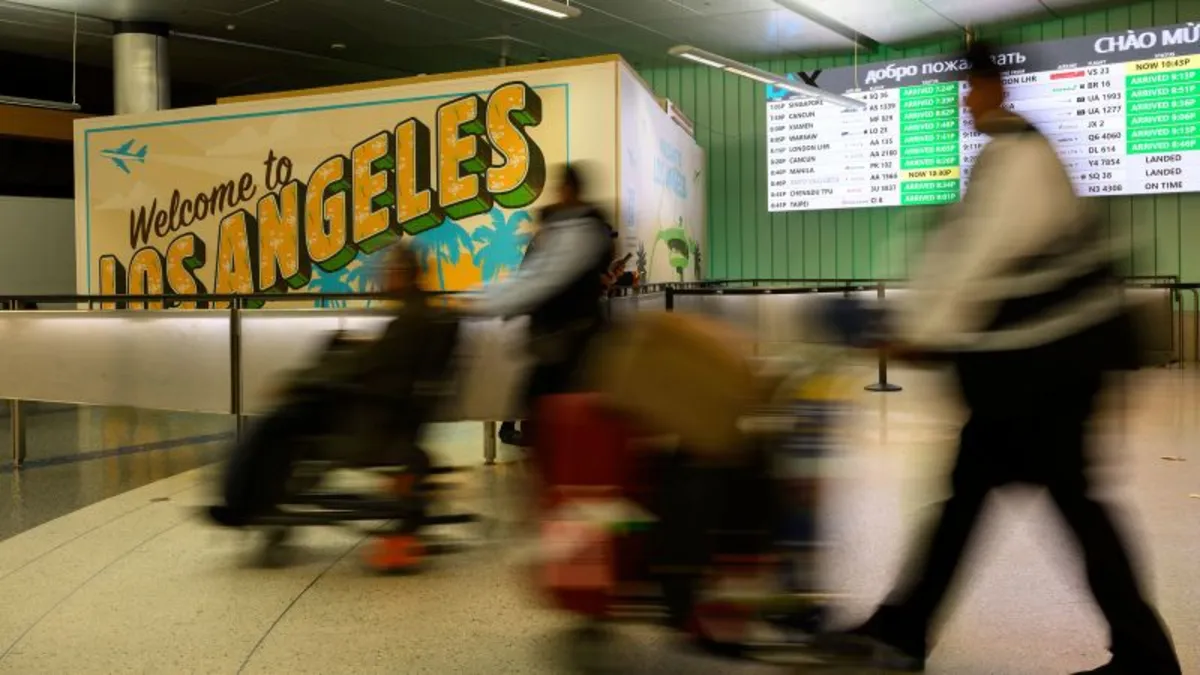
President Donald Trump has enacted a new travel ban affecting citizens from twelve primarily African and Middle Eastern countries. This ban officially took effect on Monday and comes amidst escalating tensions surrounding the president’s ongoing immigration enforcement campaign.
The new proclamation, which Trump signed last week, impacts citizens from the following nations: Afghanistan, Myanmar, Chad, the Republic of Congo, Equatorial Guinea, Eritrea, Haiti, Iran, Libya, Somalia, Sudan, and Yemen. Additionally, it imposes stricter regulations for individuals from Burundi, Cuba, Laos, Sierra Leone, Togo, Turkmenistan, and Venezuela who are currently outside the US and do not possess a valid visa.
According to guidance issued to all US diplomatic missions on Friday, the new ban does not revoke visas that have already been issued to individuals from the designated countries. However, starting Monday, unless applicants fulfill specific criteria for an exemption, their visa applications will be denied. It is important to note that travelers with previously issued visas should still be permitted to enter the United States despite the new regulations.
During Trump’s first term, a hasty executive order that barred entry to citizens from primarily Muslim countries led to significant chaos at airports and other entry points, resulting in successful legal challenges and substantial policy revisions. Fortunately, no such immediate disruptions were observed at Los Angeles International Airport in the hours following the implementation of the new ban.
Haitian-American resident Elvanise Louis-Juste, who was at the airport in Newark, New Jersey, expressed her concerns about the ban. She stated, “Many Haitians wanting to come to the US are simply seeking to escape violence and unrest. I have family in Haiti, so it’s pretty upsetting to see and hear.” Louis-Juste, 23, voiced her disappointment, saying, “I don’t think it’s a good thing. I think it’s very upsetting.”
Many immigration experts believe that the new ban has been meticulously crafted to withstand legal scrutiny. By concentrating on the visa application process, it aims to avoid the pitfalls that plagued the initial ban. Trump has cited that some countries have “deficient” screening processes for passports and other critical documents, or have historically been uncooperative in repatriating their citizens. His proclamation references a Homeland Security report regarding individuals who remain in the US past their visa expiration dates, a metric that has complicated immigration discussions for years.
Trump has connected the new travel ban to a recent terrorist attack in Boulder, Colorado, arguing that it highlights the dangers presented by visitors who overstay their visas. The individual charged in the attack overstayed a tourist visa and hails from Egypt, a country not included in the restricted list.
The travel ban has faced swift condemnation from organizations that aid and resettle refugees. Abby Maxman, president of Oxfam America, stated, “This policy is not about national security – it is about sowing division and vilifying communities that are seeking safety and opportunity in the United States.” The inclusion of Afghanistan in the ban has also frustrated supporters who have been working to resettle Afghan citizens.
Nonetheless, the ban does provide exceptions for Afghans holding Special Immigrant Visas, typically granted to individuals who have closely collaborated with the US government during the lengthy conflict in Afghanistan.